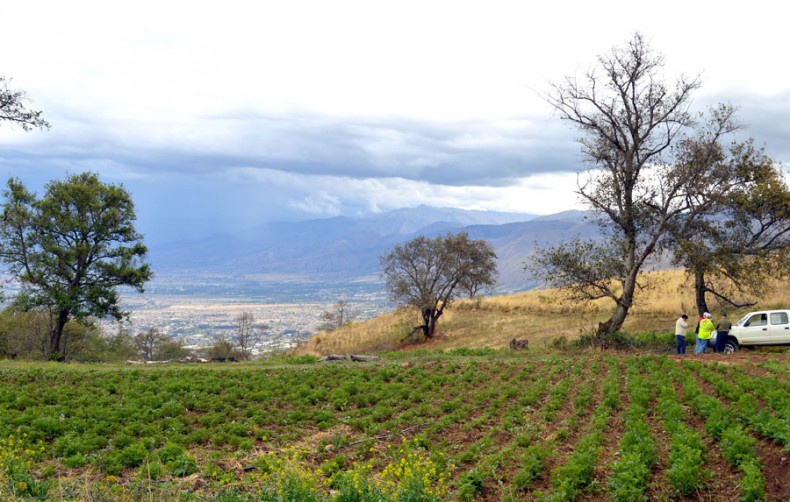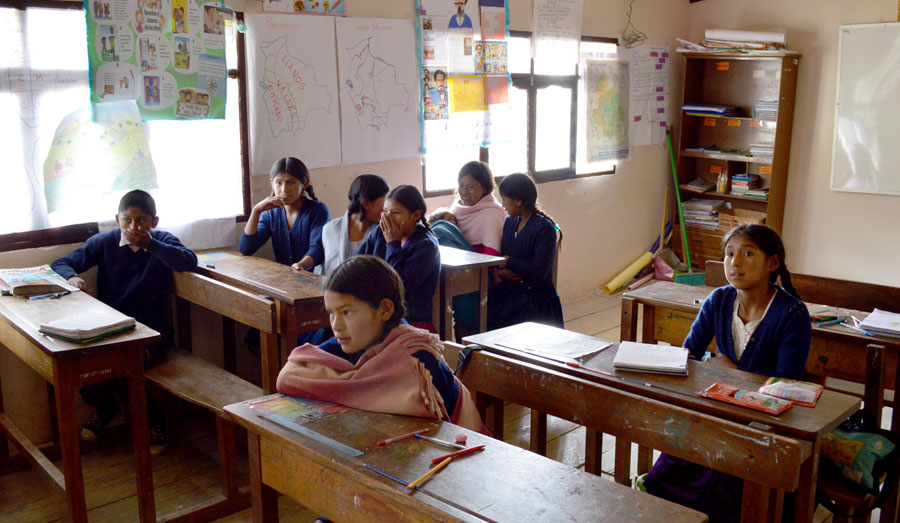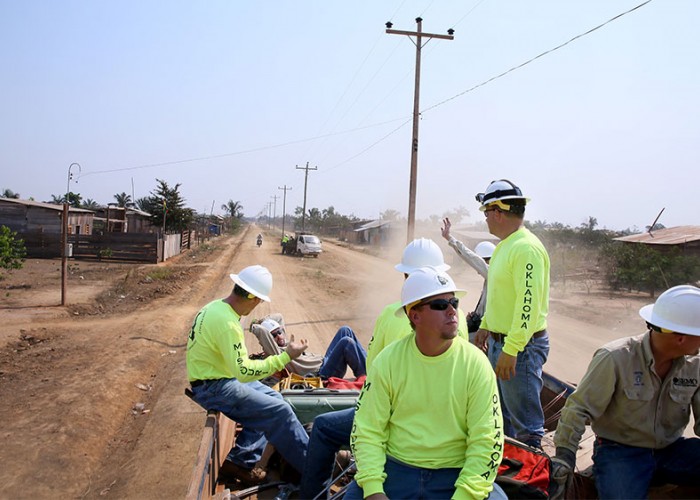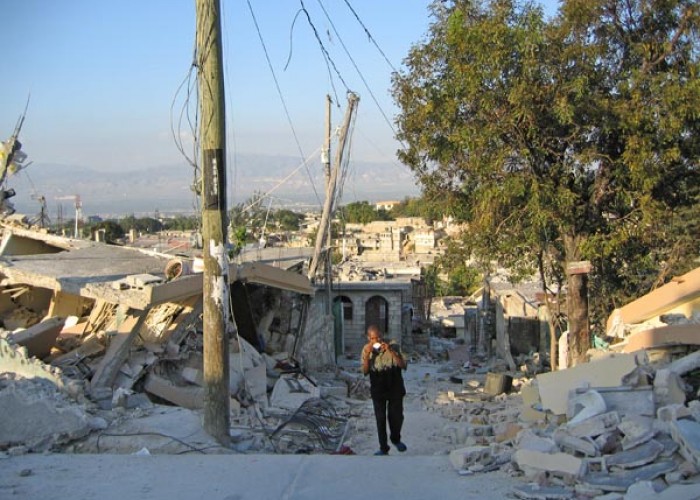NC Co-ops to Bring Electricity to Bolivian Village
Volunteer effort will improve quality of life in rural community
By Lindsey ListromVolunteers from North Carolina’s electric cooperatives will soon be heading to Bolivia to build power line infrastructure that will bring electricity — for the first time — to a rural Bolivian village.
The Brighter World International Electrification Initiative is being coordinated through the NRECA International Foundation, the philanthropic arm of the National Rural Electric Cooperative Association (NRECA).
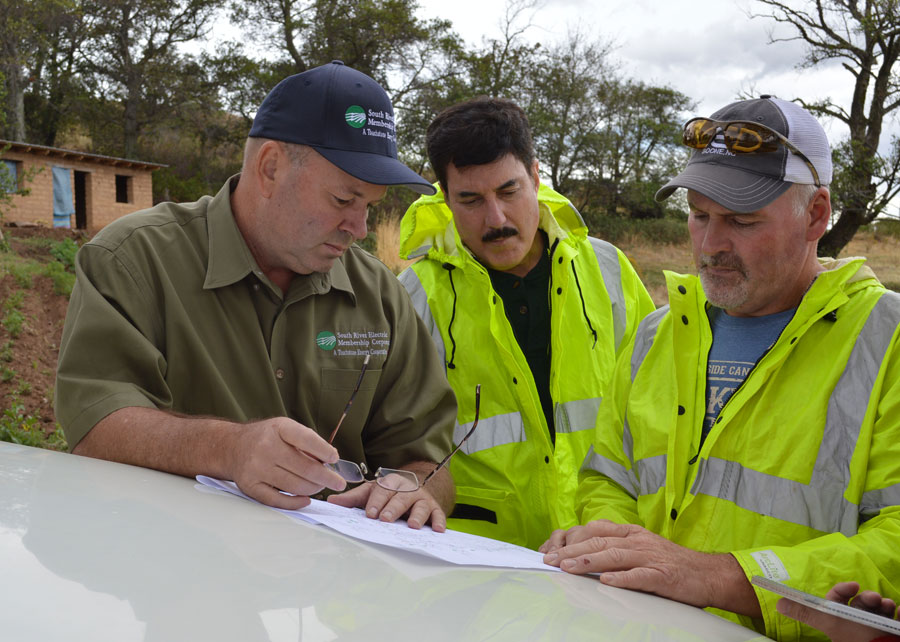
From left to right, South River EMC Vice President of Engineering Chuck Richardson and CEO Chris Spears discuss a work plan with Blue Ridge Energy Line Crew Leader Eddie Stephens.
Electric cooperatives in North Carolina will send 13 volunteer linemen to electrify the village of Laphía, located in the state of Cochabamba in the mountains of central Bolivia. They will connect power lines and build infrastructure that will enable the village to receive power from the electric grid. Crews will string nearly five miles of power line, and all work will be done by hand as bucket trucks and digger trucks will not be available. More than 68 buildings will be connected, including a school, bringing new opportunities and advantages to the 120 people in the community.
“Electric cooperatives in North Carolina were founded to bring power to rural areas, and this project reinforces our commitment to supporting people and communities and improving quality of life,” said Chris Spears, CEO of Dunn-based South River EMC, who visited the project site as part of a planning team. “I can only imagine how the lives of the people of Laphía will be transformed, just as rural America was 80 years ago when electric cooperatives were formed to light up the countryside.”
Laphía is an agricultural community located at an elevation of 11,600 feet. Locals subsist primarily by growing potatoes and flowers. Most live in modest homes of adobe brick and thatch roofs, and none have access to food refrigeration or the ability to use electric devices for household chores or to aid in their economic growth.
More than one billion people live without electric power around the world, according to the International Energy Agency, and only 66 percent of rural Bolivians had access to electricity as of 2016.
Village leaders told cooperative representatives that the promise of electricity will create new economic and educational opportunities and a stronger community, as young people will be able to stay in the village, rather than moving to the city. Connection to the grid will also provide indoor lighting for the school building, as well as extended access to a small computer lab.
NRECA International works to design and implement successful, sustainable, scalable rural electrification programs that improve education, healthcare, safety and economic opportunity. The organization has brought electricity to more than 160 million people in 44 developing countries.
-
Local Co-ops, International Efforts
-
Share this story:

